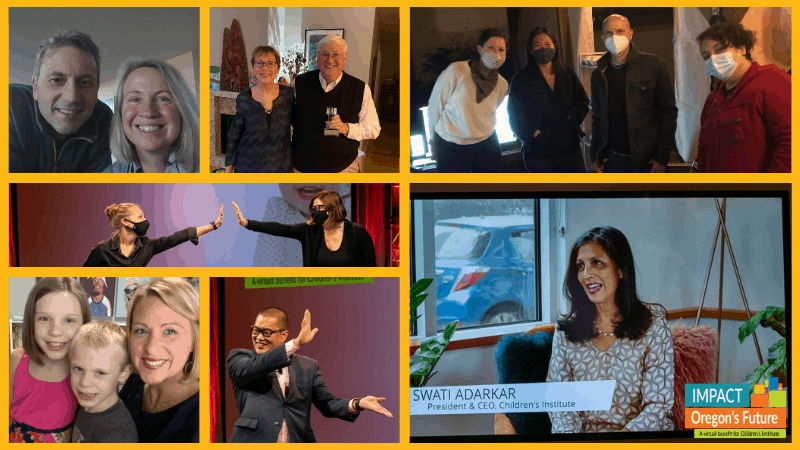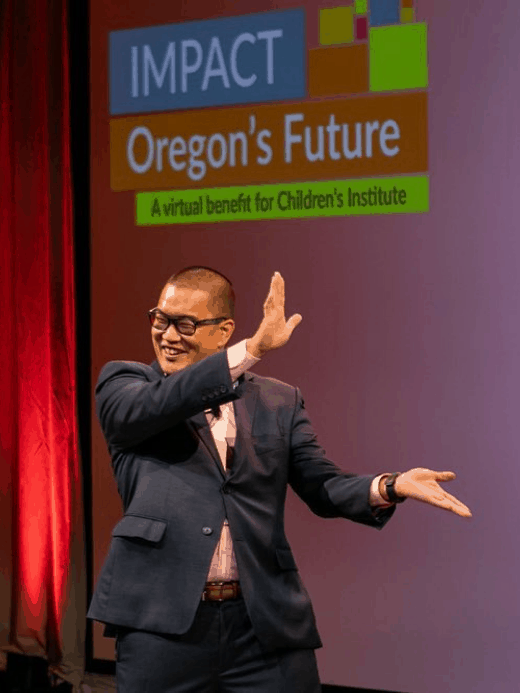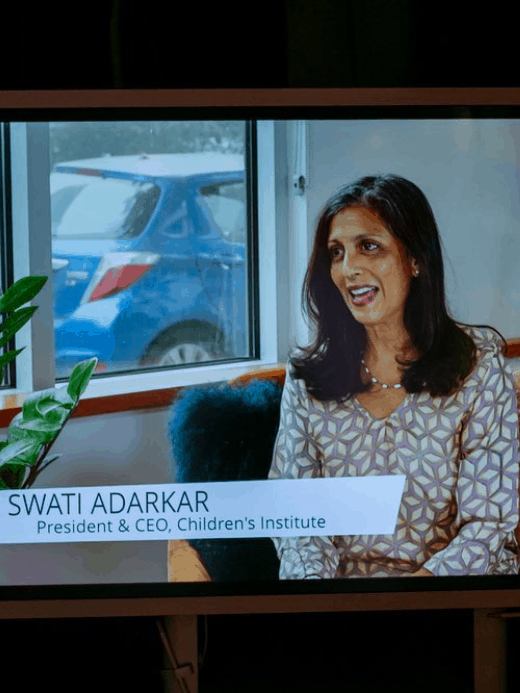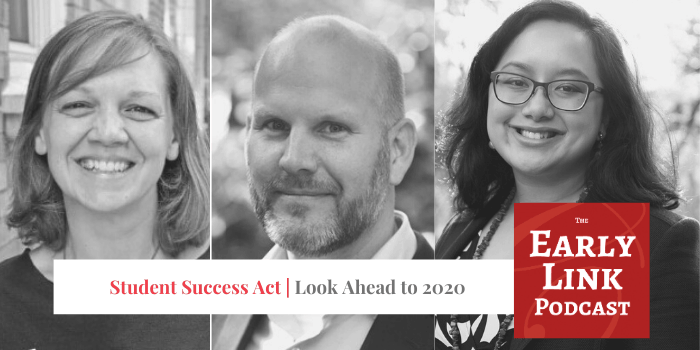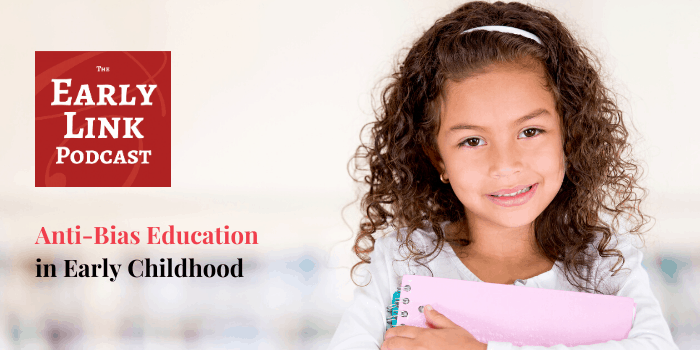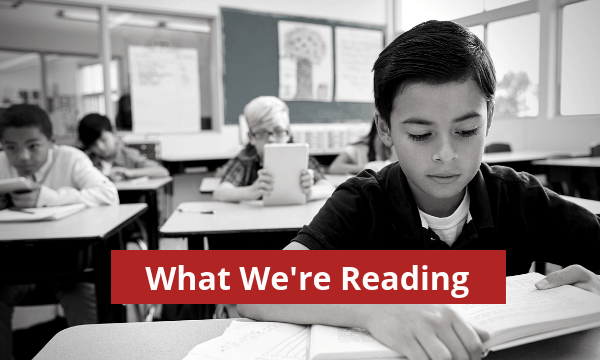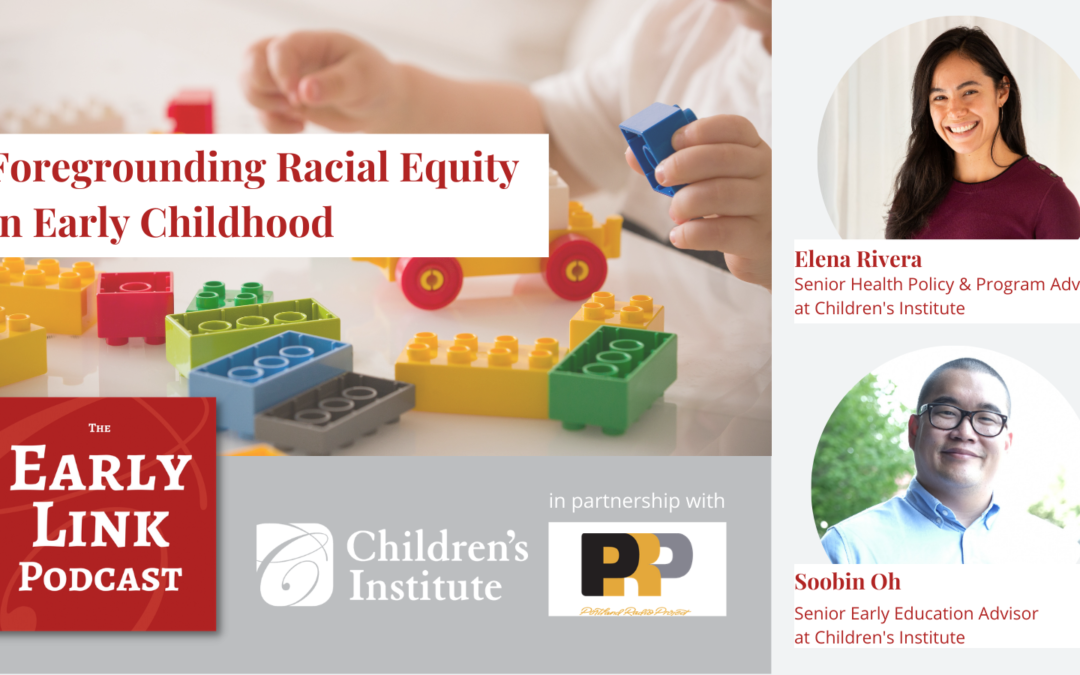
Foregrounding Racial Equity in Early Childhood
In this episode of The Early Link Podcast, host Rafael Otto speaks with Elena Rivera and Soobin Oh from Children’s Institute about the importance of racial equity in early childhood spaces and how the Children’s Institute is working to center racial equity in its own work.
Guests:
Elena Rivera is the the senior health policy and program advisor at Children’s Institute. She is responsible for establishing strong linkages between health and early learning in policy and advocacy efforts, including identifying opportunities to leverage Oregon’s health system transformation to improve outcomes for young children.
Soobin Oh is Children’s Institute’s senior early education advisor. He is a committed social justice educator and is well-versed in Anti-Bias education, culturally sustaining pedagogy, and critical pedagogy.
Summary:
Elena and Soobin explain how racism impacts learning experiences for young children, share their own personal stories related to racial bias in early childhood, and provide data on the number of children of color living in poverty in Oregon. Finally, they break down the concepts of diversity, equity, and antiracism while looking at the work that Children’s Institute is doing and how the organization is holding itself accountable to these terms.
Recommended Reading:
Ibram Kendi Defines What it Means to be an Antiracist
Gloria Ladson-Billings Reframes the Racial Achievement Gap
Geneva Gay – Preparing for Culturally Responsive Teaching
Transcript
Rafael: [00:00:00] Welcome everyone. This is The Early Link Podcast. I’m your host, Rafael Otto. I want to thank all of our listeners for tuning in and as usual you can catch us on the airwaves on 99.1 FM on Sundays at 4:30 PM, or subscribe and listen wherever you find your podcasts. Today, I’m talking with two of my colleagues at Children’s Institute.
Elena Rivera is our senior health policy and program advisor, and Soobin Oh is our senior early education advisor. We’ll talk about why a focus on racial equity is essential when thinking about the needs and hopes for kids, for all children, but particularly for young children in the early childhood space.
And we’ll talk about how Children’s Institute is working on centering racial equity in its work. Elena and Soobin, how are you both doing today?
Soobin Oh: [00:00:46] Really great, Rafael. It’s great to be with you and Elena today.
Elena Rivera: [00:00:50] Yeah, I’m doing well, too. Excited for this conversation.
Rafael: [00:00:54] Glad to have you both. I know we’ve had some opportunities to talk about this in person, of course. And I’m glad to have you both on the podcast and to get this conversation out to a broader audience. When we’re talking about racial equity, it means that we’re also talking about racism and its impact on young children.
Soobin I thought we could start with you, if you could describe some of the ways you’re thinking about how racism impacts the learning experiences for young children and then, Elena, I’ll give you an opportunity to talk about this as well.
Soobin Oh: [00:01:27] Yeah, you’re not starting with the easy questions are you Rafael?
Rafael: [00:01:32] We’re going to go right into the big picture.
Soobin Oh: [00:01:34] I love it. I love it. I mean, where do we even start in terms of how racism impacts the learning experiences of young children? I think we could think about it in different levels. What I mean by that is, on some level, we can look at data and outcomes and understand that people’s life trajectories are being impacted by racist systems or racist policy decisions or different races. Different people are having different experiences just based on the categories that they’re being put into.
And then I think you can also describe how racism impacts learning experiences for young children on a more intimate level in terms of the classroom experience of a child. For example, just receiving a lot of negative attention from a teacher, more than usual, and that could perhaps be impacted by the teacher’s uninterrogated biases.
We know that can be the case based off of new research on how implicit bias works. So, I think it could be anywhere from there to there in terms of intimate experiences all the way to broad trend data across populations. We can see a variety of ways that racism is having an impact on people.
Rafael: [00:02:51] Thanks Soobin! Elena, What are your thoughts on that?
Elena Rivera: [00:02:53] Yeah, I really appreciate that framework Soobin offers, kind of the data approach and then the experiential approach. I just want to interject another potential setting. You know, children are in classrooms and even before they’re in classrooms, children are interacting with these other systems and services be it healthcare – starting even with the prenatal care that their mothers receive when they’re pregnant – and including family support services as well. And in these kinds of programs and settings, kids and families are experiencing everything from bias at an individual level to the kind of systemic impacts like neighborhood poverty, crime rates, poor housing conditions and so on, you know, lack of access to food as well.
These are conditions that are created by structural racism that we have built into our institutions and our policies. And so this all adds up. You can think of the kind of compounding nature of racism. Such that by the time a child enters a classroom, they already have a host of experiences that have shaped the kinds of opportunities they’ve been exposed to, how their families are doing and how those children perceive both their own skills and identity, as well as how they fit into the picture of their community.
For the full transcript, please download the pdf below.

